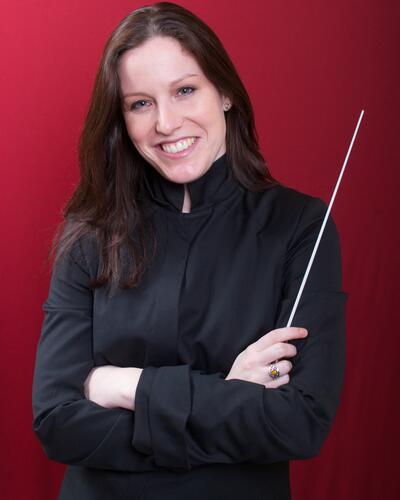Leah McGray is the Director of Instrumental Studies for the State University of New York at Geneseo. Dr. McGray conducts the Geneseo Symphony Orchestra, Geneseo Wind Ensemble, and teaches classes in conducting, and theory. Previously holding a similar position at Rhodes College in Memphis TN, she has been the conductor for Memphis Symphony Orchestra's "Leading from Every Chair" program and a guest conductor with the Memphis Youth Symphony Orchestra. Dr. McGray earned her Doctor of Musical Arts in conducting at Northwestern University in Evanston, Illinois, where she studied with Dr. Mallory Thompson. She received the Master of Music degree in conducting from University of Toronto, studying with Dr. Gillian MacKay, and Bachelor of Music and Bachelor of Education degrees from Acadia University. A two-time winner of Social Science Humanities and Research Council grants from the Canadian government, her research focuses on new works for winds, with an emphasis on the music of Joel Puckett. Dr. McGray has taught band and orchestra for middle and high school music programs in Canada, and is in demand internationally as a conductor and adjudicator. Professional affiliations include the College Band Directors National Association, College Music Society, Conductors Guild, Canadian Band Association, Canadian Music Educators Association, National Association for Music Education, and the Nova Scotia Band Association.
